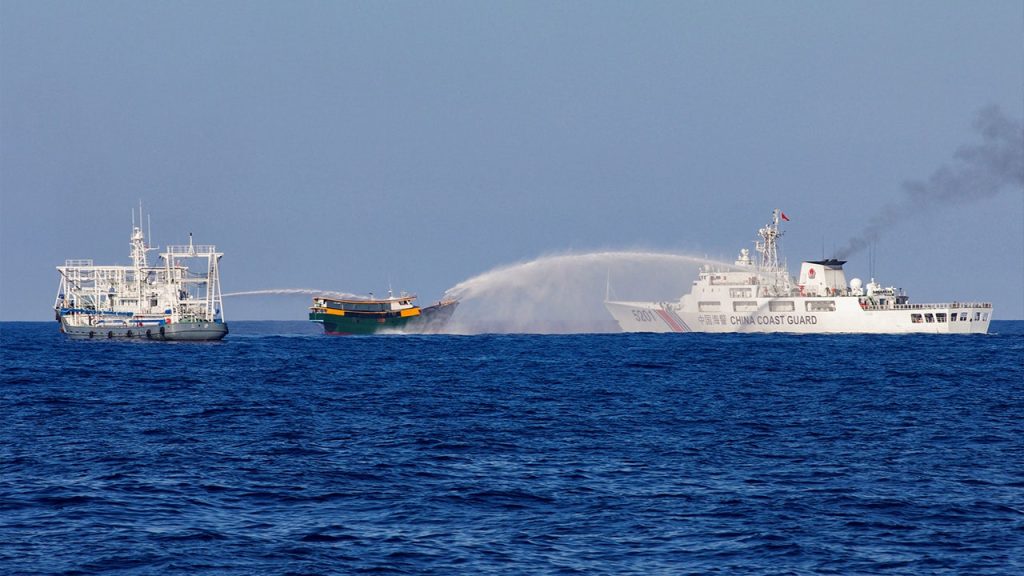The Philippines recently faced an aggressive confrontation in the South China Sea with China, which involved the use of water cannons by China’s coast guard. President Ferdinand Marcos Jr. responded by stating that the Philippines will not yield to such attacks and will take a proportionate, deliberate, and reasonable response to the situation. The president did not elaborate on specific steps that the government will take in response to the incident, but emphasized that Manila will stand firm against illegal coercive actions by Chinese forces.
The escalation in tensions occurred after Chinese coast guard vessels targeted Philippine Navy crewmen with water cannons near the Second Thomas Shoal. Several Filipino crew members were injured during the incident, leading to concerns about the safety of Philippine personnel in the contested waters. The dispute stems from the repair of the BRP Sierra Madre naval vessel by the Philippines, which had been left rusting for over 25 years. Confrontations between China and the Philippines have intensified since the repairs began in October 2023.
The Sierra Madre serves as an outpost for the Philippines on the Second Thomas Shoal, a low-tide elevation in the Spratly Islands that is claimed by multiple nations including China, Taiwan, Vietnam, Malaysia, and the Philippines. Despite its dilapidated condition, the Philippine government has maintained a presence on the vessel to stake its claim in the area. The U.S. Indo-Pacific Command has confirmed that the reef is not subject to sovereignty claims under international law. The U.S. has condemned China’s aggressive actions and reiterated its commitment to defend the Philippines under the terms of the 1951 Mutual Defense Treaty.
China has rejected outside interference in the South China Sea issue and remains steadfast in upholding its territorial sovereignty and maritime rights. Chinese Foreign Ministry spokesman Lin Jian dismissed U.S. involvement in the region, emphasizing China’s determination to protect its interests. The U.S., along with regional allies like Japan and Australia, have called on Beijing to adhere to international laws and refrain from altering the status quo in the South China Sea. The ongoing tensions highlight the complex geopolitical dynamics in the region and the challenges of managing disputes in the contested waters.
The incident underscores the strategic importance of Taiwan as a key line of defense against a potential global conflict with China, highlighting its significance for U.S. security interests. The Philippine government’s defiance against Chinese aggression sends a message of resilience and determination in the face of ongoing challenges in the South China Sea. As tensions continue to simmer in the region, diplomatic efforts and multilateral cooperation will be crucial in preventing further escalation and maintaining stability in one of the world’s most hotly contested maritime zones.


